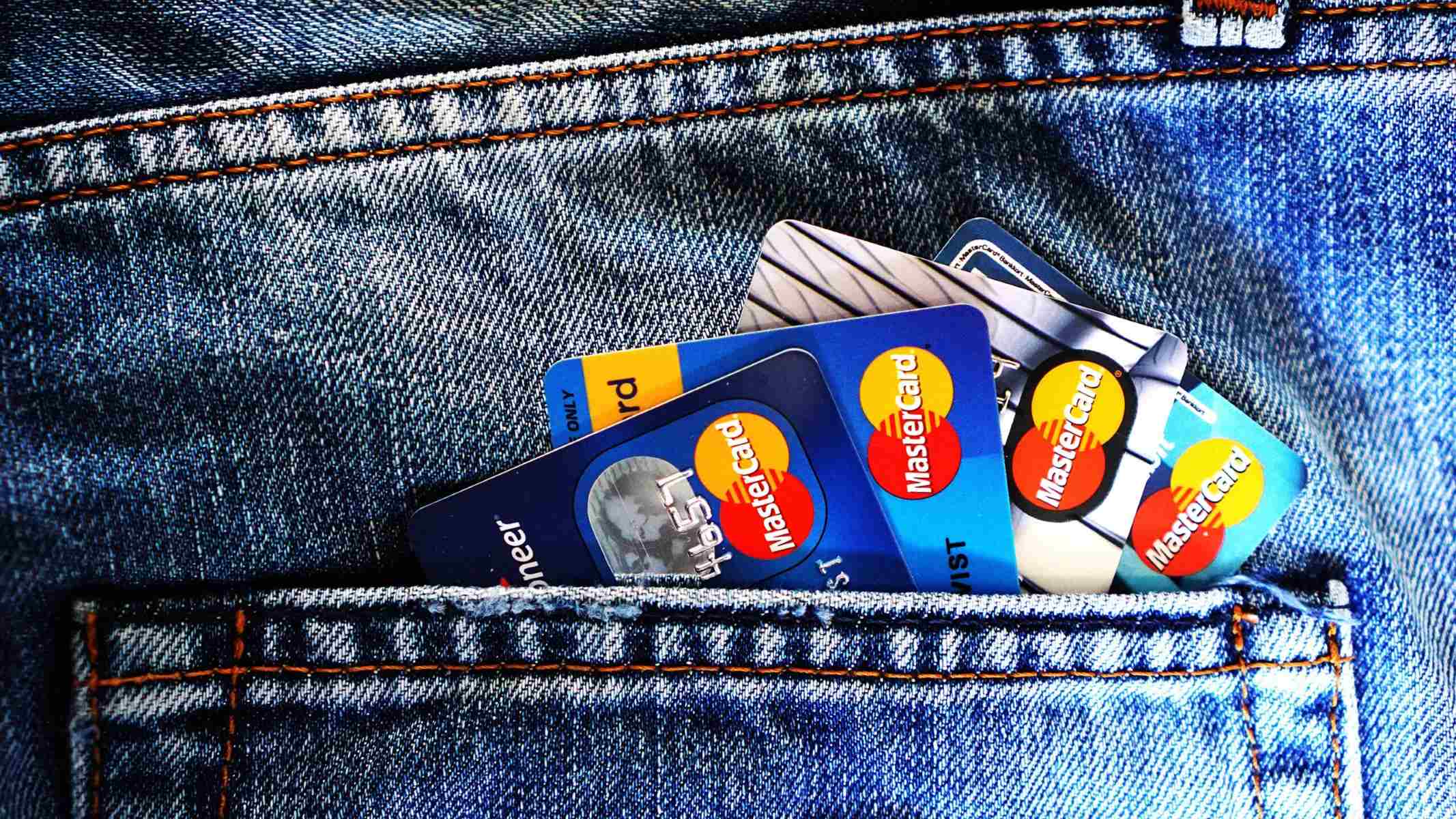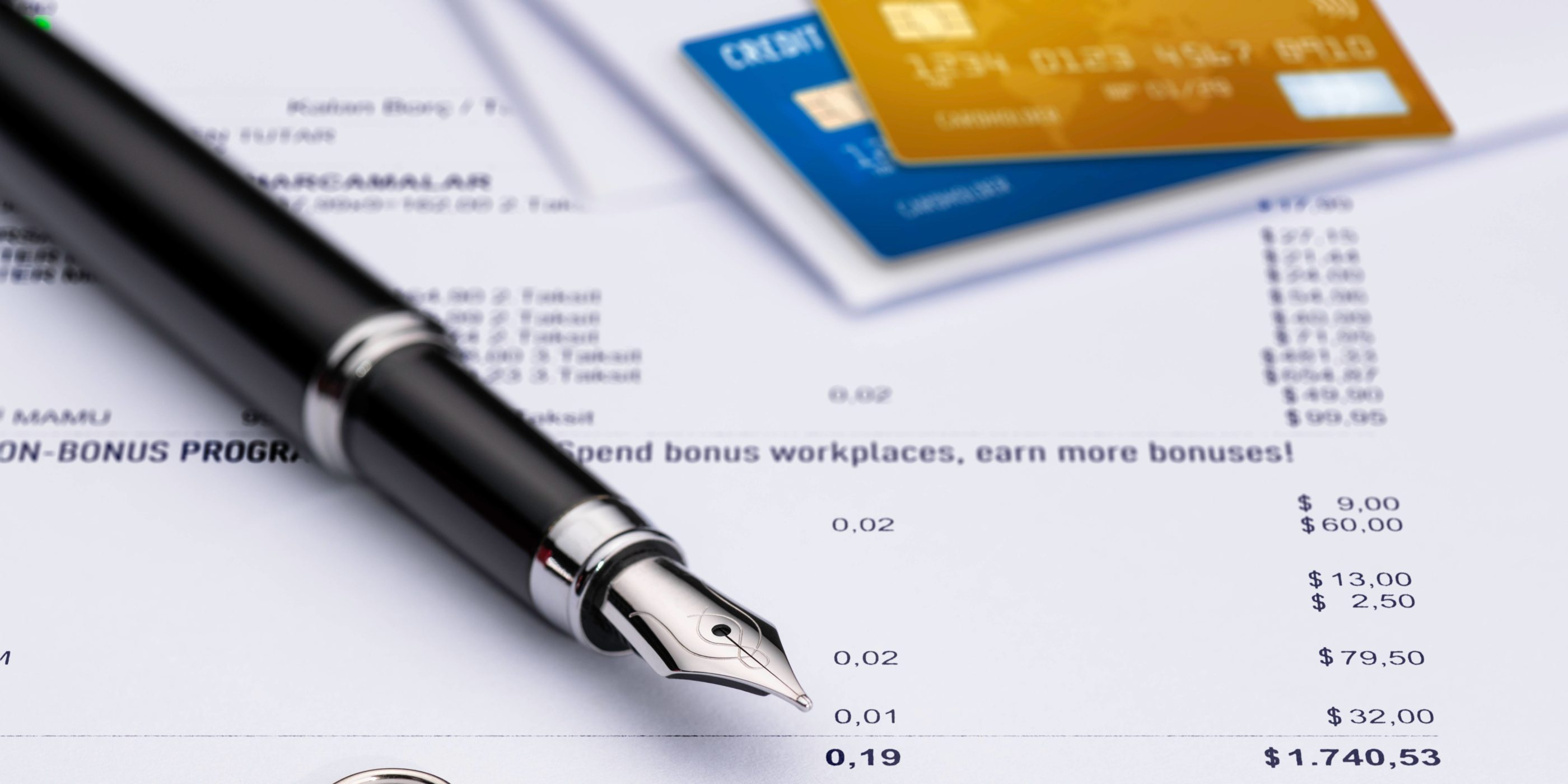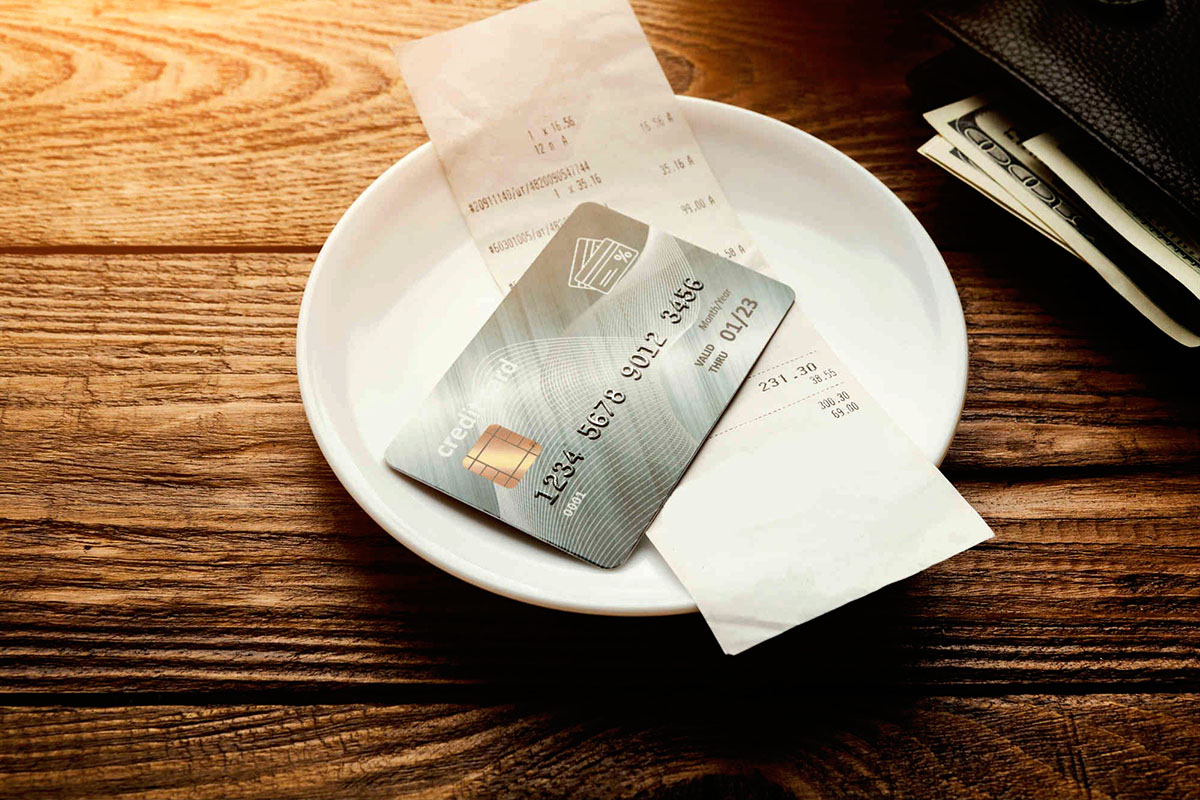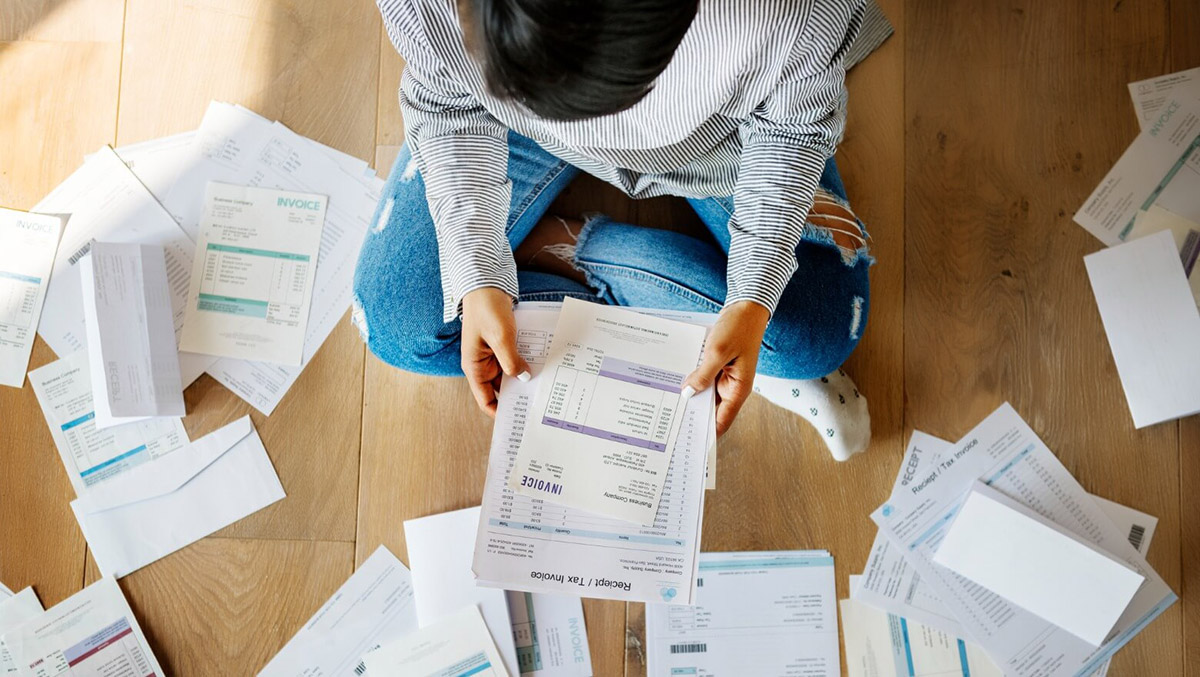

Finance
How Long Should You Keep A Secured Credit Card
Modified: February 21, 2024
Unsure how long to keep a secured credit card? Discover the right duration today! Understand the finance behind it and make informed decisions.
(Many of the links in this article redirect to a specific reviewed product. Your purchase of these products through affiliate links helps to generate commission for LiveWell, at no extra cost. Learn more)
Table of Contents
- Introduction
- What is a secured credit card?
- Benefits of using a secured credit card
- Factors to consider when deciding how long to keep a secured credit card
- Establishing credit history
- Improving credit score
- Transitioning to an unsecured credit card
- How long to keep a secured credit card
- Tips for managing a secured credit card effectively
- Conclusion
Introduction
A secured credit card can be a valuable tool for individuals looking to build or rebuild their credit. It operates similarly to a traditional credit card, but requires a cash deposit as collateral. This deposit serves as security for the credit card issuer, reducing their risk in case the cardholder defaults on payments.
Secured credit cards are often recommended for individuals with limited credit history, low credit scores, or a history of financial difficulties. By responsibly using a secured credit card, individuals can establish positive credit history, improve their credit score, and eventually transition to an unsecured credit card.
In this article, we will explore the benefits of using a secured credit card, factors to consider when deciding how long to keep one, and tips for managing a secured credit card effectively.
Whether you’re starting on your credit building journey or working towards improving your credit score, understanding the role of a secured credit card and how long to keep it will help you make informed decisions and achieve your financial goals.
What is a secured credit card?
A secured credit card is a type of credit card that requires a cash deposit as collateral. This deposit acts as security for the credit card issuer, reducing their risk in issuing credit to individuals with limited credit history or poor credit scores. The credit limit on a secured credit card is typically equal to the amount of the security deposit, although some issuers may offer a higher credit limit based on the applicant’s creditworthiness.
Unlike an unsecured credit card, which does not require a deposit, a secured credit card helps individuals establish or rebuild their credit. By using the card responsibly and making timely payments, cardholders can demonstrate their creditworthiness to lenders and credit bureaus.
It’s important to note that a secured credit card is not the same as a prepaid debit card. With a prepaid debit card, individuals load a specific amount of money onto the card, and that amount determines the available balance for spending. A secured credit card, on the other hand, allows individuals to borrow money up to their credit limit, just like a traditional credit card.
Secured credit cards often have similar features as unsecured credit cards, such as the ability to make purchases, withdraw cash, and build credit history. They may also offer additional perks such as cashback rewards or travel benefits, depending on the issuer.
It’s important to note that using a secured credit card responsibly is crucial for reaping the benefits. Making regular, on-time payments and ensuring the balance is kept low will help individuals establish a positive credit history and potentially improve their credit score.
If you have a limited credit history, a low credit score, or are struggling to qualify for an unsecured credit card, a secured credit card can be an excellent option to kickstart your credit journey.
Benefits of using a secured credit card
Using a secured credit card can provide numerous benefits for individuals who are looking to build credit or improve their credit score. Here are some of the key advantages:
- Establishing credit history: If you have a limited or nonexistent credit history, a secured credit card can help you establish a positive credit history. By making regular, on-time payments, you demonstrate your ability to manage credit responsibly, which is crucial for future loan applications.
- Improving credit score: A secured credit card can also be an effective tool for improving your credit score. Payment history and credit utilization ratio are two significant factors that affect your credit score. By consistently making payments on time and keeping your credit utilization low (using a small portion of your available credit), you can positively impact your credit score over time.
- Gaining financial discipline: A secured credit card requires responsible financial behavior. By having a cash deposit as collateral, individuals are encouraged to spend within their means and make timely payments. This can help develop good financial habits and discipline over time.
- Building credit for future financial opportunities: A strong credit history opens doors to various financial opportunities. It can help you qualify for better interest rates on loans, secure rental agreements, and even potentially land a job. By using a secured credit card and building a positive credit history, you set yourself up for future financial success.
- Earning rewards and perks: While secured credit cards may not offer as many rewards and perks as unsecured credit cards, some issuers do provide cashback rewards or other benefits. These rewards can add value to your spending and create a more enjoyable credit card experience.
It’s important to note that the benefits of using a secured credit card can be reaped when the card is used responsibly. This means paying off the balance in full or making at least the minimum payment by the due date to avoid interest charges and late fees.
Remember, a secured credit card is a stepping stone towards establishing a strong credit profile. With responsible use, you can unlock the benefits of better credit standing, increased financial opportunities, and greater financial freedom.
Factors to consider when deciding how long to keep a secured credit card
Deciding how long to keep a secured credit card depends on several factors that are unique to each individual’s financial situation. Here are some key factors to consider:
- Credit history and score: One of the main factors to consider is your credit history and score. It’s essential to monitor your credit score regularly and check for improvements. If you started with a low credit score or limited credit history, keeping a secured credit card for a longer period can help you build a stronger credit profile before transitioning to an unsecured credit card.
- Financial stability: Assess your financial stability and ability to manage credit responsibly. If you are comfortably meeting your payment obligations and have a steady income, it may indicate that you are ready to transition to an unsecured credit card.
- Interest rates and fees: Review the terms and conditions of your secured credit card, including the interest rates and fees associated with it. If the card charges high fees, it may be worth considering whether it’s still beneficial to keep it in the long run. Alternatively, you can explore other secured credit card options with more favorable terms.
- Opportunities for an unsecured credit card: Keep an eye on your credit journey and explore opportunities to upgrade to an unsecured credit card. Some secured credit card issuers may offer a path to upgrade after a certain period of responsible card usage and credit improvement.
- Goals and future financial plans: Consider your long-term financial goals and plans. If you anticipate significant financial milestones, such as applying for a mortgage or starting a business, you may need a stronger credit profile. Keeping your secured credit card for a longer duration can help you achieve those goals.
It’s important to regularly reassess your credit situation and make informed decisions based on your progress. Consulting with a financial advisor or credit counselor can provide valuable insights and guidance when deciding how long to keep a secured credit card.
Remember, the ultimate goal is to establish a solid credit foundation and build a positive credit history, which will open doors to better financial opportunities in the future.
Establishing credit history
One of the primary reasons individuals choose to get a secured credit card is to establish a credit history. A credit history is a record of your borrowing and repayment behavior, which lenders use to assess your creditworthiness when deciding whether to approve your loan applications.
If you have little to no credit history, obtaining traditional unsecured credit cards or loans can be challenging. This is where a secured credit card can be a valuable tool. By responsibly using a secured credit card, you can begin to build your credit history from scratch.
Here are some tips to help you establish a credit history using a secured credit card:
- Make regular, on-time payments: Your payment history has a significant impact on your credit score. Aim to make your credit card payments on time each month to demonstrate your ability to manage credit responsibly.
- Keep your credit utilization low: Credit utilization refers to the percentage of your available credit that you are currently using. Aim to keep your credit utilization below 30% to show lenders that you can effectively manage and control your borrowing.
- Use the card for small purchases: Regularly use your secured credit card for small, everyday purchases. This will help you demonstrate consistent and responsible credit card usage, which is important for building a positive credit history.
- Avoid maxing out your credit limit: While it’s important to use your secured credit card, try to avoid maxing out your credit limit. This can negatively impact your credit score and may indicate to lenders that you are relying heavily on credit.
- Monitor your credit report: Regularly check your credit report for any errors or discrepancies. Reporting mistakes can negatively impact your credit history, so it’s crucial to address them promptly.
By following these tips and maintaining good financial habits, you can begin to establish a positive credit history with your secured credit card. Over time, as you build a solid credit foundation, you may become eligible for unsecured credit cards and other financial products with more favorable terms.
Remember, patience and consistency are key when it comes to building credit history. It may take several months or even years to establish a robust credit profile, but the benefits will be worth it in the long run.
Improving credit score
If you have a low credit score, using a secured credit card responsibly can be an effective way to start improving your credit score. Your credit score is a numerical representation of your creditworthiness, and it plays a crucial role in determining your eligibility for loans, credit cards, and other financial products.
Here are some strategies to help improve your credit score using a secured credit card:
- Pay on time, every time: Your payment history is the most influential factor in calculating your credit score. Make sure to make your secured credit card payments on time each month. Late payments can have a significant negative impact on your credit score.
- Avoid carrying high balances: Aim to keep your credit card balances low. A high credit utilization ratio (the amount of credit you are using compared to your credit limit) can negatively impact your credit score. Ideally, try to keep your credit utilization below 30%.
- Build a positive payment history: Consistently making timely payments over an extended period can demonstrate your creditworthiness and help improve your credit score. Avoid missing payments or making late payments as they can have a detrimental effect on your credit score.
- Maintain a mix of credit: While a secured credit card can contribute to improving your credit score, having a diverse credit mix can also be beneficial. Consider adding other types of credit, such as a small personal loan or a retail store card, to demonstrate your ability to manage different types of credit responsibly.
- Monitor your credit report: Regularly review your credit report to identify any errors or discrepancies. If you find any inaccuracies, dispute them with the credit reporting agencies to ensure your credit report is reflecting accurate information.
- Be patient and consistent: Building and improving your credit score takes time and consistent effort. While using a secured credit card responsibly is a great step, it’s important to maintain good credit habits over the long term to see significant improvements in your credit score.
By implementing these strategies and being responsible with your secured credit card usage, you can gradually improve your credit score. As your credit score improves, you may become eligible for unsecured credit cards with better terms and lower interest rates, which can further accelerate your credit-building journey.
Remember, improving your credit score is a gradual process, and it requires discipline and patience. But with time and responsible credit management, you can achieve a better credit score and open up more financial opportunities for yourself.
Transitioning to an unsecured credit card
Transitioning from a secured credit card to an unsecured credit card is an important milestone in your credit-building journey. An unsecured credit card is a traditional credit card that does not require a cash deposit as collateral. Here are some steps to help you make a smooth transition:
- Monitor your credit score: Keep a close eye on your credit score to gauge your creditworthiness. As your credit score improves, you become more eligible for unsecured credit cards. Aim for a credit score above 650 to increase your chances of approval.
- Check for upgrade options: Contact your secured credit card issuer to inquire about potential upgrade options. Some issuers may have specific programs that allow cardholders to transition to an unsecured card after a certain period of responsible card usage.
- Research unsecured credit card offers: Explore different unsecured credit card options available to you. Compare their terms, fees, rewards programs, and interest rates to find the best fit for your financial needs and goals.
- Apply for an unsecured credit card: Once you have identified a suitable unsecured credit card, submit your application. Ensure that you meet the eligibility requirements and have a stable income to support your credit card payments.
- Close the secured credit card: If approved for an unsecured credit card, it’s generally advisable to close your secured credit card account. Keeping both cards open may lead to confusion and make it harder to manage your credit effectively.
- Continue responsible credit card usage: Even with an unsecured credit card, it’s crucial to maintain responsible credit card usage. Make timely payments, avoid carrying high balances, and keep your credit utilization ratio low to continue building a positive credit history.
Remember, transitioning to an unsecured credit card signifies progress in your credit journey. It demonstrates that you have successfully built credit and established a positive credit history. With an unsecured credit card, you may have access to a higher credit limit, better rewards, and additional perks.
However, it’s important to use your unsecured credit card responsibly and avoid falling back into old habits. Continuously monitor your credit score, practice good financial habits, and maintain a healthy credit utilization ratio to ensure you continue to strengthen your credit profile.
By effectively managing your credit, you can pave the way for further financial opportunities and achieve your long-term financial goals.
How long to keep a secured credit card
Deciding how long to keep a secured credit card depends on your individual financial goals and credit situation. While there is no one-size-fits-all answer, here are some factors to consider when determining the appropriate length of time to keep a secured credit card:
- Credit history and score: If your credit history is limited or your credit score is low, keeping a secured credit card for an extended period can be beneficial. The longer you responsibly use your secured credit card, the more time you have to build a positive credit history and improve your credit score.
- Financial stability: Assess your current financial situation and stability. If you have a steady income, are comfortably meeting your financial obligations, and have established good credit habits, you may consider transitioning to an unsecured credit card sooner.
- Opportunities for an unsecured credit card: Research and explore opportunities to upgrade your secured credit card to an unsecured credit card. Some issuers have specific programs that allow cardholders to upgrade after a certain period of responsible card usage and credit improvement.
- Interest rates and fees: Review the terms and conditions of your secured credit card, including the interest rates and fees associated with it. If the card charges high fees or offers unfavorable terms, it may be worth considering whether it’s still beneficial to keep it in the long run.
- Future financial goals: Consider your long-term financial goals and plans. If you anticipate major financial milestones, such as applying for a mortgage or starting a business, you may need a stronger credit profile. Keeping your secured credit card for a longer duration can help you achieve those goals.
It’s important to continually assess your credit progress and reassess the need for a secured credit card. Regularly monitor your credit score, review your credit report for any errors, and consult with a financial advisor if needed.
While there is no specific timeframe for how long to keep a secured credit card, it’s important to ensure that you are using it as a stepping stone and leveraging it to improve your creditworthiness. Ultimately, the goal is to build a strong credit profile, establish a positive credit history, and transition to unsecured credit cards with better terms and lower interest rates.
Remember, the length of time you keep a secured credit card will vary based on your individual circumstances. Be diligent, practice responsible credit habits, and make informed decisions that align with your financial goals and aspirations.
Tips for managing a secured credit card effectively
Managing a secured credit card effectively is crucial for building a strong credit history and improving your financial well-being. Here are some tips to help you make the most of your secured credit card:
- Use it responsibly: Treat your secured credit card like any other credit card. Only make purchases that you can afford to pay off and avoid unnecessary debt. Responsible usage is key to building a positive credit history.
- Make payments on time: Paying your secured credit card bill on time is essential. Late payments not only incur fees but can also negatively impact your credit score. Set up automatic payments or reminders to ensure you never miss a payment.
- Pay off the balance in full: Whenever possible, aim to pay off the full balance on your secured credit card each month. This helps you avoid interest charges and keeps your credit utilization ratio low, both of which are factors that impact your credit score.
- Keep your credit utilization low: Try to keep your credit utilization ratio below 30%. This means using only a small portion of your available credit limit. Lower credit utilization demonstrates responsible credit management and can positively impact your credit score.
- Monitor your credit report: Regularly review your credit report to check for inaccuracies or fraudulent activity. Reporting any errors promptly can help protect your credit and ensure your credit history is accurately reflected.
- Consider a higher deposit: If you have the means, consider increasing your initial security deposit. A higher deposit can result in a higher credit limit, which can help with keeping your credit utilization low and improving your credit score.
- Avoid closing the account too soon: Closing your secured credit card account too soon may impact your credit score negatively. Consider keeping it open for an adequate period, especially if it has no annual fees. Closing it too soon could shorten your credit history length.
- Regularly review your terms: Keep an eye on the terms and fees of your secured credit card. Some issuers may offer opportunities to upgrade to an unsecured card after a certain period of responsible payment behavior. Knowing your options can help you make informed decisions.
- Stay within your credit limit: Avoid exceeding your credit limit on your secured credit card. Doing so can lead to penalties, fees, and potential damage to your credit score. Use your credit limit wisely and responsibly.
- Develop good financial habits: Using a secured credit card is an excellent opportunity to develop healthy financial habits. Build a budget, track your expenses, and prioritize responsible spending and saving. These habits will benefit you beyond just credit card management.
By following these tips, you can effectively manage your secured credit card and optimize its benefits for building a positive credit history. Responsible credit management will set the stage for future financial success and provide you with a solid foundation for accessing better credit opportunities.
Remember, a secured credit card is a tool for improving your financial standing, so use it wisely and responsibly to achieve your credit goals.
Conclusion
A secured credit card can be a valuable tool for individuals looking to build or rebuild their credit. By responsibly using a secured credit card, individuals can establish a positive credit history, improve their credit score, and ultimately transition to an unsecured credit card. The length of time to keep a secured credit card depends on individual circumstances, such as credit history, financial stability, and goals. It’s essential to regularly assess your credit progress and make informed decisions regarding when to transition to an unsecured credit card.
Throughout your journey of using a secured credit card, there are several factors to consider. These include establishing credit history, which involves responsible card usage, on-time payments, and low credit utilization. Improving your credit score requires consistent payment habits, maintaining low balances, and monitoring your credit report for accuracy. Transitioning to an unsecured credit card involves monitoring your credit score, exploring upgrade options, researching unsecured credit card offers, and applying for a suitable card.
To manage a secured credit card effectively, use it responsibly, make payments on time, keep credit utilization low, monitor your credit report regularly, and consider increasing your deposit for a higher credit limit. It’s important to develop good financial habits and stay within your credit limit. By following these tips, you can optimize the benefits of a secured credit card and build a stronger credit profile.
In conclusion, a secured credit card can be an invaluable tool in your journey towards financial independence and a strong credit history. By using it responsibly, making timely payments, and practicing good financial habits, you can unlock the benefits of improved creditworthiness and open doors to better financial opportunities. Remember, building credit takes time and discipline, but with perseverance and responsible credit management, you can pave the way for a brighter financial future.














